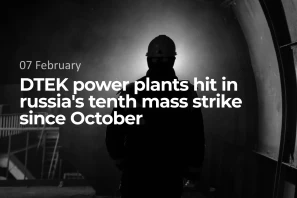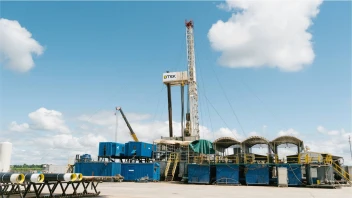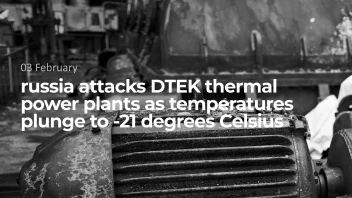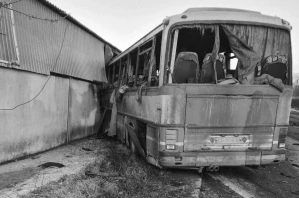Ukraine’s largest private energy company with a growing presence in the EU, entered the Polish renewables market on Wednesday through an acquisition of the largest battery storage project in Poland, via DTEK’s EU-focused renewable energy subsidiary DRI (DTEK Renewables International).
DRI signed a final binding share purchase agreement with Poland’s Columbus Energy on 27th March which will give it the right to build a 133 MW battery storage facility in southern Poland, subject to permitting approvals.
The agreement is DTEK’s first major infrastructure investment in Poland and a key building block in the company’s plan to create a pan-European energy system uniting Ukraine and the EU. DTEK’s goal is to build a 5 GW portfolio of renewable energy projects in Europe by 2030, via DRI.
On Friday, March 22nd, russian forces carried out a massive attack targeting Ukraine's energy infrastructure. Two of DTEK’s power stations have been knocked offline. In total, DTEK has temporarily lost around half its available generation capacity.
DTEK miners in Ukraine's eastern Dnipropetrovs'k region were stuck underground and had to be evacuated using power from back-up generators after russia launched massive military attacks on Ukraine's civilian energy infrastructure early on Friday.
At the time, 1,060 miners were underground. Immediately after the blackout, the company implemented emergency response plans, switched on backup power supplies and began evacuating miners to the surface.
DTEK thermal power plants have been attacked more than 40 times this winter and more than 160 times since the start of the full-scale invasion.
According to the Ukrainian Air Force, the enemy used 151 missiles and drones.
On March 18-19th, DTEK CEO Maxim Timchenko participated in and addressed the conference, drawing attention from the international community to the critical necessity of financing green recovery and modernising Ukraine’s energy sector. DTEK has long emphasised the importance of collaborative efforts for the sector's advancement and shared prosperity.
During the panel debate, Mr. Timchenko pointed out that with advantages in gas, nuclear, and huge renewables potential, Ukraine can help build an energy future free from russian influence. “It is time to see Ukraine as Europe’s first line of defence and energy security,” Mr. Timchenko said.
Three DTEK thermal power plants in Ukraine were hit overnight in a fresh russian missile and drone attack, seriously damaging equipment and injuring one worker. DTEK teams are working intensively to assess the scale of the damage and restore operations.
The russian attacks – which also targeted Ukrainian hydro power plants – come exactly one week after the biggest russian assault on Ukraine’s energy system since full-scale invasion in 2022. Those attacks destroyed half of DTEK’s available generating capacity. Five of the six DTEK power stations that had been operating prior to this week have now sustained serious damage.
CEO Maxim Timchenko commented on the latest news: “DTEK teams are doing everything they can to repair and restore power after russia's senseless and unprovoked attacks, however we cannot wait much longer. Ukraine needs help from our allies today.
“We are asking for emergency supplies of energy equipment from industry partners and foreign governments and longer-term investment to build distributed generation, like windfarms, that are less vulnerable to attack. In the immediate term however, we need stronger air defences. With every successful attack, russia only grows bolder. We urge our partners in the US, Europe and around the world to make this vital investment in Europe's defence at this critical moment in the war.”
- The Washington Post – DTEK CEO details impact of russian missile attacks on power generation facilities and urges enhanced air defence systems in Ukraine.
- The New York Times | Russian Attack Leaves Over a Million in Ukraine Without Electricity
- CNN | Russia launches likely largest-ever attack on Ukraine’s energy system, Ukrainian official says
- Bloomberg | Missile Barrage Raises New Worries on Ukraine’s Nuclear Safety







